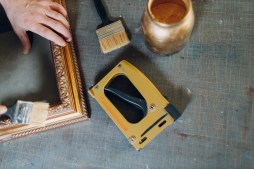Jet Lag Hacks: Healthy Ways to Adjust to New Time Zones

Embarking on a journey can ignite a sense of thrill and adventure, but there’s one pesky challenge that might overshadow your experience: jet lag. This travel woe strikes when you traverse several time zones, throwing your body’s natural sleep-wake rhythm out of whack. The result? A feeling of exhaustion and disorientation that can prevent you from fully embracing the wonders of your destination. The good news is that there are numerous healthy strategies to conquer jet lag and transition smoothly into new time zones, allowing you to relish every moment of your trip.
Understanding Jet Lag
Before we dive into the hacks for dealing with jet lag, it’s essential to understand what causes it. Jet lag occurs because our bodies operate on an internal clock known as the circadian rhythm. This internal clock regulates our sleep patterns, hormone production, and other bodily functions. When we travel across multiple time zones rapidly, our internal clock gets out of sync with the new local time.
Hack 1: Gradually Adjust Your Sleep Schedule
One effective way to minimize the impact of jet lag is by gradually adjusting your sleep schedule before you travel. If you’re traveling eastward, try going to bed an hour earlier each night leading up to your trip. On the other hand, if you’re heading westward, gradually push back your bedtime by an hour each night. By doing this, you allow your body’s internal clock to align with the destination’s time zone slowly.
Hack 2: Stay Hydrated
Dehydration can worsen the symptoms of jet lag and make it harder for your body to adjust to a new time zone. It’s vital to stay hydrated throughout your journey by drinking plenty of water before and during your flight. Avoid excessive consumption of alcohol or caffeine as they can dehydrate you further. Instead, opt for herbal teas or water-infused with fresh fruits for a refreshing way to quench your thirst.
Hack 3: Get Natural Light Exposure
Exposure to natural light can help reset your body’s internal clock and combat jet lag. Upon arrival at your destination, spend time outdoors during daylight hours. Natural light exposure helps regulate your body’s production of melatonin, a hormone that plays a crucial role in sleep-wake cycles. If you’re unable to get outside, try sitting by a window or using light therapy devices that mimic natural sunlight.
Hack 4: Establish a Routine
Establishing a routine in your new time zone as quickly as possible can help your body adjust faster. Try to eat meals and go to bed at the same time each day, according to the local schedule. This consistency sends signals to your body that it’s time to sleep or wake up, making it easier for you to adapt to the new time zone. Additionally, regular exercise can also aid in adjusting your circadian rhythm and combatting jet lag.
In conclusion, jet lag doesn’t have to ruin your travel experience. By following these healthy hacks, you can minimize the effects of jet lag and adjust more smoothly to new time zones. Remember to gradually adjust your sleep schedule before traveling, stay hydrated throughout your journey, get natural light exposure, and establish a routine in the new time zone. With these strategies in place, you’ll be well-equipped to beat jet lag healthily and make the most of every adventure on your travels.
This text was generated using a large language model, and select text has been reviewed and moderated for purposes such as readability.





